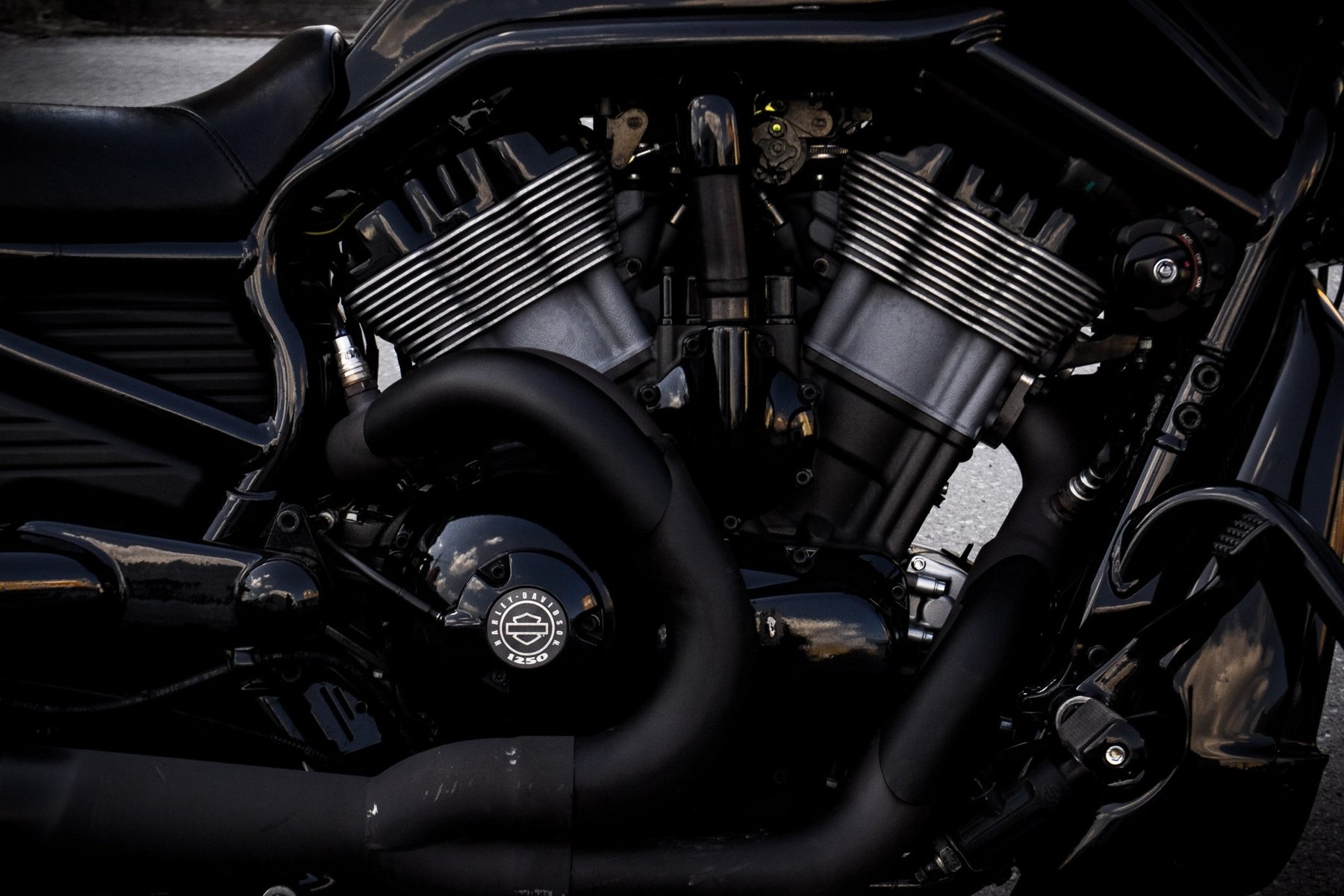4.6 Rating | 95% Recommend ⭐️⭐️⭐️⭐️⭐️

How Do Ignition Coils Work?
There is nothing quite like the feeling of cruising down the open road with the wind in your hair and the hum of your car's powerful engine beneath you. Everything is running smoothly, and you can't help but smile at the sheer excitement of being behind the wheel.
But have you ever stopped to consider what makes that exhilarating experience possible? One unsung hero in your vehicle's ignition system plays a significant role in ensuring your engine performs at its best – the ignition coil.
How do ignition coils work, though? We’re glad you asked. At Southwest Performance Parts, we’re passionate about the intricate interworkings underneath the hood. With more than 20 years of serving as the most trusted provider of high-performance ignition coils, we’re going to break it all down for you today.
After we pull back the curtain and give you a detailed look at how ignition coils work, we’ll take the time to explain how upgrading to top-quality ignition coils can enhance your engine's performance, fuel efficiency, and reliability, giving you the confidence to tackle any road with ease.
So, strap in and prepare for an informative journey into the heart of your vehicle's ignition system. By the end of this guide, you'll have a newfound appreciation for the powerful spark that keeps your engine roaring, courtesy of Southwest Performance Parts, your trusted provider of high-end auto parts in the industry.
Let’s start with a quick explanation of the role these components play in turning your car on.
The Role of Ignition Coils in the Ignition System
Ignition coils are an essential component of your vehicle's ignition system. They serve as the primary link between the battery and the spark plugs, converting the low voltage supplied by the battery into the high voltage required to create a spark that ignites the air-fuel mixture in the engine's combustion chambers.
Without a functioning ignition coil, the engine would not receive the necessary energy to fire the spark plugs, leading to poor performance, misfires, or even a complete failure to start.
The ignition system comprises several components, including the battery, ignition switch, distributor (in older vehicles), spark plugs, and various sensors and control modules. Each part plays a crucial role in ensuring that the engine starts and runs efficiently. The ignition coil, however, is the heart of this system, providing the electrical energy necessary for the combustion process.
In a conventional ignition system, the ignition coil is connected to the distributor, which then distributes the high-voltage current to the appropriate spark plug at the right time. Modern vehicles, on the other hand, utilize a coil-on-plug (COP) system that places an individual ignition coil directly over each spark plug, eliminating the need for a distributor. This design allows for more accurate and efficient spark timing, ultimately improving engine performance.
But, how do ignition coils work exactly? Let’s pop the hood and take a look at the inner workings of your ignition system.
How Do Ignition Coils Work?
To fully grasp how ignition coils work, it's essential to understand the science behind them and the processes that occur under the hood. Let's dive into the inner workings of ignition coils and explore how they make a spark and where they get their power from.
How Does an Ignition Coil Make a Spark?
Ignition coils rely on the principle of electromagnetic induction to create a spark. At the core of every ignition coil is a tightly wound coil of wire, surrounded by an iron core. This primary coil is connected to the vehicle's battery, which supplies low-voltage electricity. When the ignition switch is turned on, the primary coil receives this low-voltage current, creating a magnetic field around it.
As the engine operates, the engine control module (ECM) or the ignition control module (ICM) interrupts the current flow in the primary coil. This sudden interruption causes the magnetic field to collapse rapidly, inducing a high-voltage current in the secondary coil, which is also wrapped around the iron core but contains many more turns of wire.
This high voltage current, which can reach up to 50,000 volts or more, travels through the ignition coil's secondary winding, then through the spark plug wire, and ultimately to the spark plug. When the voltage is high enough, it jumps the gap between the spark plug's electrodes, creating a spark that ignites the air-fuel mixture in the combustion chamber.
Where Does an Ignition Coil Get Power?
The ignition coil gets its power from the vehicle's battery, which supplies the necessary low-voltage current. This current is channeled through the ignition switch and various electronic control modules, like the ECM or ICM, which are responsible for controlling the ignition timing and ensuring that the spark is produced at precisely the right moment for optimal combustion.
The Simplified Version of How Ignition Coils Work…
For some, the technical jargon above can be a bit overwhelming. You may be left with more questions than answers if you’re not a gearhead. So, we’ll take a more simplified look at the process of getting your coils to turn your engine on.
Knowing How Ignition Coils Work in General, What Makes High-Performance Ignition Coils so Special?
Now, that you know how ignition coils work in general, we want to take a closer look at the profound benefits of investing in high-performance ignition coils over their cheap counterparts.
Improved Engine Performance
High-performance ignition coils provide a stronger, more consistent spark. This results in a more complete combustion process, which enhances engine performance. With more power and better throttle response, your vehicle's overall driving experience is significantly improved.
Better Fuel Efficiency
As high-performance ignition coils improve combustion efficiency, they also help in utilizing fuel more effectively. This leads to better fuel economy, as your engine can extract more energy from the same amount of fuel, ultimately saving you money at the pump.
Reduced Emissions
Efficient combustion not only improves engine performance and fuel efficiency but also reduces harmful emissions. High-performance ignition coils contribute to cleaner exhaust by ensuring a more complete burn of the air-fuel mixture, resulting in fewer unburned hydrocarbons and lower emissions.
Enhanced Reliability
High-quality, high-performance ignition coils are built with better materials and advanced designs that withstand wear and tear, heat, and voltage stresses. This ensures a longer service life and reduces the risk of ignition coil failure, providing you with peace of mind and a more reliable vehicle.
To Reap All These Benefits and More, Get Your Ignition Coils at Southwest Performance Parts!
If you’ve struggled with frequent replacement of your ignition coils, you know how frustrating and expensive it is. What causes ignition coils to keep going bad, though? Well, often times it’s the result of skimping on quality and going with cheap coils.
So, to reap all the benefits we’ve described above along with less stress, you can shop at Southwest Performance Parts. Our ignition coils don’t just offer better vehicle performance. They last much longer than their low-quality counterparts.
The best part? Not only are you saving money in the long run with less frequent replacements, but you also save money on the initial purchase!
We know what you’re thinking…how are the prices on these coils so low despite their high quality?
We design and manufacture all our high-end parts ourselves under the reliable A-Team brand. Then, we sell them directly to you here in our online storefront. This allows us to cut out the middlemen that add unnecessary costs, delays, and other headaches to the traditional auto parts shopping experience.
Whether you’re looking for LS ignition coils or you need coils for your BBC engine, you can expect to find exactly what you need here in our online storefront. We even have high-performance serpentine belt kits, performance headlights, performance brake boosters, performance transmission coolers, universal brake proportioning valves, and so much more.
So - the next time you need to make a repair or replacement parts on your vehicle, remember: the best of both worlds in quality and affordability awaits you at Southwest Performance Parts.
Parting Thoughts on How Ignition Coils Work
So, how do ignition coils work? In summary, these coils utilize the age-old principle of electromagnetic induction to convert low-voltage electricity from the car's battery into high-voltage electricity.
When the engine is running, the car's computer (engine control module) controls the flow of electricity in the primary coil. As the current stops, the magnetic field collapses, generating high voltage current in the secondary coil. This high-voltage electricity travels to the spark plug, creating a spark across its electrodes.
The spark ignites the air-fuel mixture in the engine, causing combustion and powering the car. In summary, ignition coils transform low-voltage power from the battery into high-voltage electricity, producing the spark needed for efficient engine performance.
Hopefully, you have a more clear understanding of the magic underneath the hood every time you start your vehicle now. And, when the time comes to replace your ignition coils, reap the benefits that come with shopping at Southwest Performance Parts!


